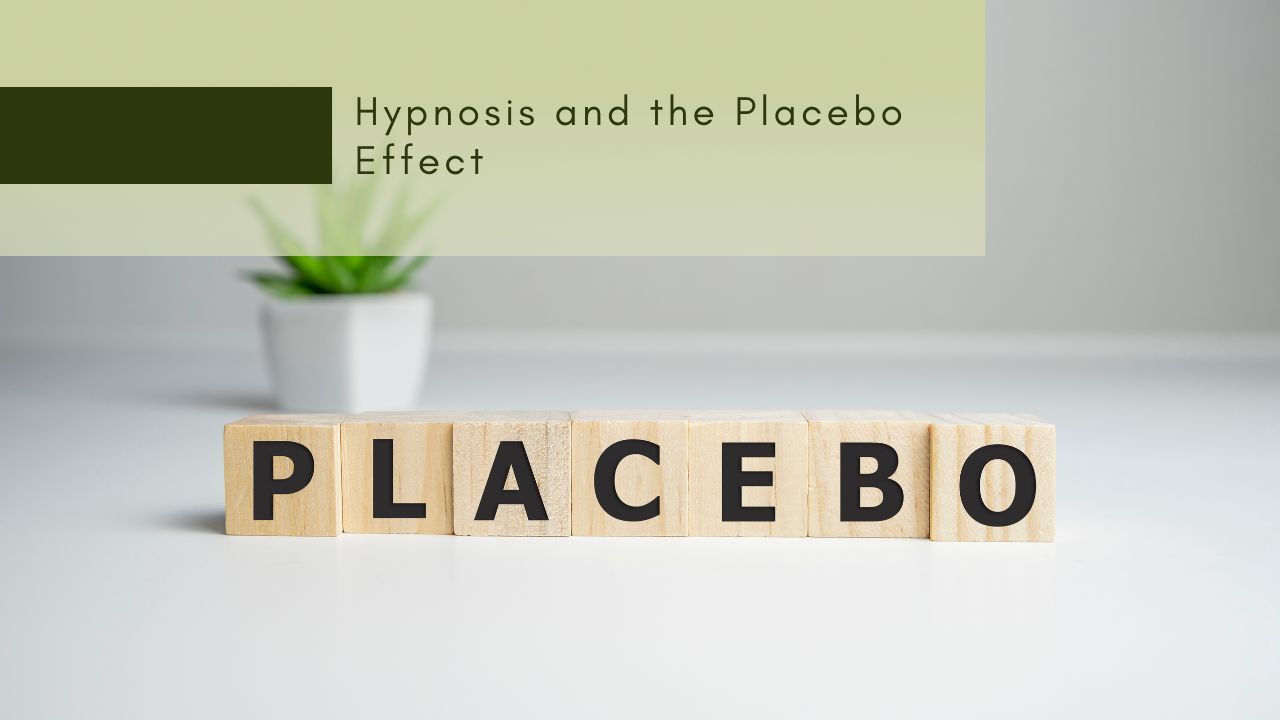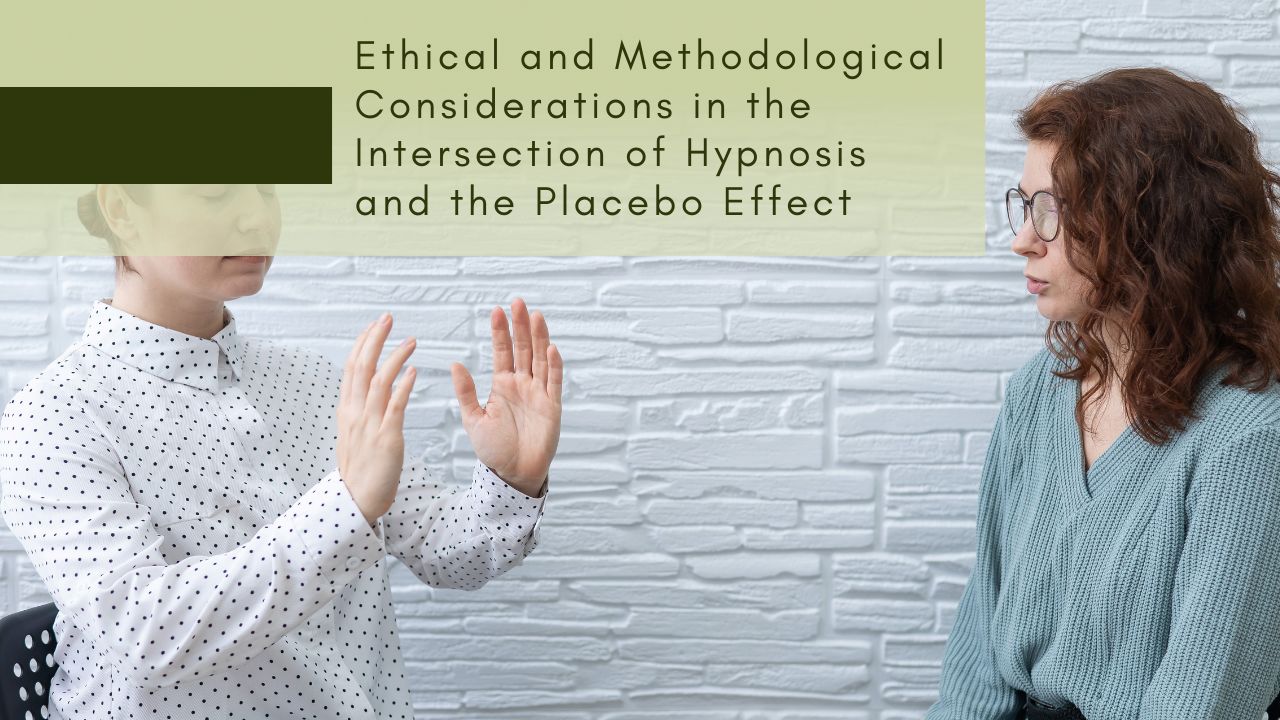Introduction:
Stress is the body’s response to any demand or challenge, whether physical, emotional, or mental. It is a natural reaction that triggers the “fight or flight” response, releasing hormones like adrenaline and cortisol to help the body cope with immediate threats. However, chronic or excessive stress can have detrimental effects on both physical and mental health.
Physically, prolonged stress can lead to a variety of health issues, including cardiovascular problems such as hypertension and heart disease, weakened immune function, digestive disorders, and chronic pain conditions like headaches and muscle tension. It can also contribute to weight gain or loss and disrupt sleep patterns, leading to fatigue and decreased overall health.
Mentally, chronic stress can exacerbate or trigger mental health conditions such as anxiety, depression, and panic disorders. It can impair cognitive functions, leading to difficulties with concentration, memory, and decision-making. Emotional symptoms like irritability, mood swings, and feelings of being overwhelmed are common, which can strain relationships and reduce the quality of life.
Understanding and managing stress through healthy lifestyle choices, relaxation techniques, and professional support when needed is crucial for maintaining overall health and well-being.
In today’s fast-paced and demanding world, stress has become a prevalent aspect of modern life.
The pressures of work, personal responsibilities, financial challenges, and constant connectivity through technology contribute to a heightened state of stress for many individuals. Balancing multiple roles and expectations often leads to chronic stress, affecting people across various age groups and walks of life.
Recognizing the widespread nature of stress is essential, as it underscores the importance of developing effective coping mechanisms and prioritizing mental and physical health. By acknowledging the commonality of stress, society can work towards creating supportive environments that promote resilience, well-being, and healthier lifestyles for everyone.
Finding healthy ways to manage stress is crucial for maintaining both physical and mental well-being.
Effective stress management techniques can help mitigate the adverse effects of chronic stress, which include a range of health problems such as cardiovascular disease, weakened immune function, digestive issues, anxiety, and depression. By adopting healthy stress management strategies—such as regular physical activity, mindfulness practices, adequate sleep, and social support—individuals can improve their resilience and overall quality of life. These practices not only help in reducing the immediate symptoms of stress but also build long-term coping skills, fostering a more balanced and fulfilling life. Additionally, effective stress management enhances emotional stability, cognitive function, and interpersonal relationships, contributing to a more productive and harmonious existence.
Organic Stress-Reduction Techniques
-
Mindfulness and Meditation
Mindfulness practices, such as meditation, offer significant benefits for calming the mind and reducing stress hormones. Engaging in regular mindfulness meditation helps individuals focus on the present moment, promoting a state of relaxation and mental clarity. This practice can lead to a decrease in the production of stress hormones like cortisol and adrenaline, which are often elevated during periods of chronic stress. The benefits of mindfulness meditation include:
- Reduced Stress
- Improved Emotional Regulation
- Enhanced Concentration and Cognitive Function
- Better Physical Health: Lowering stress hormones through mindfulness can lead to improved cardiovascular health, strengthened immune function, and reduced symptoms of stress-related conditions such as hypertension and chronic pain.=
- Increased Well-being
- Improved Sleep Quality: Mindfulness meditation can help regulate sleep patterns and improve the quality of sleep, which is often disrupted by stress.
By incorporating mindfulness practices like meditation into daily routines, individuals can experience profound improvements in their physical health, mental clarity, and emotional stability, leading to a more balanced and stress-free life.
-
Relaxation Techniques
Various relaxation techniques can effectively reduce stress and promote a sense of calm and well-being. Among these techniques, deep breathing exercises and progressive muscle relaxation are particularly beneficial:
Deep Breathing Exercises
Deep breathing exercises focus on slow, deliberate breaths to help calm the nervous system and reduce stress. Techniques include:
- Diaphragmatic Breathing: Also known as abdominal or belly breathing, this technique involves inhaling deeply through the nose, allowing the abdomen to expand, and exhaling slowly through the mouth. This helps engage the diaphragm and enhances oxygen exchange.
- 4-7-8 Breathing: Inhale through the nose for a count of 4, hold the breath for a count of 7, and exhale completely through the mouth for a count of 8. This pattern helps regulate the breath and promote relaxation.
- Box Breathing: Inhale through the nose for 4 counts, hold the breath for 4 counts, exhale through the mouth for 4 counts, and hold the breath again for 4 counts. Repeating this cycle can help stabilize the breath and calm the mind.
Progressive Muscle Relaxation (PMR)
PMR involves systematically tensing and then relaxing different muscle groups in the body. This technique helps release physical tension and promotes a state of relaxation. The steps include:
- Find a Comfortable Position: Sit or lie down in a comfortable position in a quiet environment.
- Tense Muscle Groups: Starting from the toes, tense each muscle group for about 5-10 seconds. Focus on the sensation of tension.
- Relax Muscle Groups: Release the tension in the muscle group and focus on the feeling of relaxation for 15-20 seconds before moving to the next muscle group.
- Progress Through the Body: Move sequentially through the body, from the feet to the head, tensing and relaxing each muscle group.
-
Physical Activity
Regular exercise has profound stress-relieving effects and promotes overall well-being in multiple ways:
Stress-Relieving Effects of Exercise Include:
- Endorphin Release: Physical activity stimulates the production of endorphins, which are natural mood lifters. These chemicals help reduce pain perception and trigger positive feelings, often referred to as the “runner’s high.”
- Reduction in Stress Hormones: Exercise reduces levels of the body’s stress hormones, such as adrenaline and cortisol. Lower levels of these hormones can lead to a calmer and more relaxed state.
- Improved Sleep: Regular exercise can improve sleep quality and duration, which is often disrupted by stress. Better sleep helps restore the body and mind, enhancing stress resilience.
- Distraction and Relaxation: Engaging in physical activity can serve as a distraction, allowing individuals to break away from the cycle of negative thoughts and worries. This mental break can provide a sense of relaxation and clarity.
- Enhanced Cognitive Function: Exercise boosts brain function by increasing blood flow to the brain, which can improve concentration, memory, and overall cognitive performance. This helps manage stress more effectively by enhancing problem-solving and decision-making abilities.
The ways in which exercise promoes overall well-being include
- Physical Health Benefits: Regular exercise improves cardiovascular health, strengthens muscles, enhances flexibility, and boosts the immune system. A healthier body is more resilient to stress and illness.
- Mental Health Improvement: Exercise has been shown to alleviate symptoms of depression and anxiety. It promotes the release of neurotransmitters like serotonin and norepinephrine, which can enhance mood and reduce feelings of depression.
- Increased Energy Levels: Regular physical activity boosts overall energy levels and reduces feelings of fatigue. Enhanced energy levels can make it easier to cope with daily stressors.
- Enhanced Self-Esteem and Confidence: Achieving fitness goals and maintaining a regular exercise routine can improve self-esteem and confidence. Feeling good about oneself can reduce stress and improve overall mental health.
- Social Interaction: Many forms of exercise, such as group fitness classes or team sports, provide opportunities for social interaction. Building social connections and having a support network can significantly reduce stress and promote emotional well-being.
- Mind-Body Connection: Activities like yoga and tai chi emphasize the mind-body connection, promoting mindfulness and relaxation. These practices can enhance overall mental and physical harmony, reducing stress and promoting a sense of peace.
Incorporating regular exercise into one’s lifestyle is a powerful tool for managing stress and enhancing overall well-being. Whether through aerobic activities, strength training, or mind-body exercises, the benefits of physical activity extend far beyond physical health, contributing to a more balanced, happy, and resilient life.
-
Healthy Sleep Habits
Getting enough quality sleep is crucial for optimal stress management and emotional regulation. Sleep plays a fundamental role in maintaining physical health, cognitive function, and emotional well-being. The following are several reasons why quality sleep is important in these areas:
Optimal Stress Management
- Reduction in Stress Hormones: Adequate sleep helps regulate the levels of stress hormones like cortisol. During sleep, the body reduces cortisol production, which helps lower overall stress levels. Chronic sleep deprivation, on the other hand, can lead to elevated cortisol levels, increasing stress and anxiety.
- Enhanced Resilience: Quality sleep enhances the body’s ability to cope with stress. Well-rested individuals are generally more resilient and better equipped to handle daily challenges and stressors.
- Improved Problem-Solving Skills: Sleep supports cognitive functions such as problem-solving, decision-making, and critical thinking. These skills are essential for effectively managing stressful situations.
- Physical Restoration: Sleep allows the body to repair and restore itself. This physical recovery is vital for maintaining overall health and energy levels, which contribute to better stress management.
Emotional Regulation
- Balanced Emotional Responses: Sleep is critical for regulating emotions. Sufficient sleep helps the brain process and respond to emotional stimuli appropriately, reducing the likelihood of overreacting to stressors.
- Mood Stability: Adequate sleep contributes to mood stability. Lack of sleep is associated with increased irritability, mood swings, and heightened emotional sensitivity. Consistent, quality sleep helps maintain a balanced and positive mood.
- Mental Clarity: Quality sleep improves cognitive function, including memory, attention, and concentration. This mental clarity is essential for maintaining emotional control and making rational decisions, particularly under stress.
- Decreased Anxiety and Depression: Chronic sleep deprivation is linked to higher risks of anxiety and depression. By ensuring enough sleep, individuals can reduce these risks and enhance their emotional health.
- Enhanced Social Interactions: Well-rested individuals tend to have better social interactions and relationships. Positive social connections are crucial for emotional support and stress relief.
Overall Well-Being
- Improved Physical Health: Quality sleep is essential for overall physical health, including immune function, cardiovascular health, and metabolic regulation. A healthy body supports a healthy mind, enhancing overall stress management capabilities.
- Increased Energy and Vitality: Sufficient sleep restores energy levels, leading to greater physical and mental vitality. This increased energy helps individuals engage in stress-reducing activities such as exercise and hobbies.
- Better Lifestyle Choices: Well-rested individuals are more likely to make healthier lifestyle choices, including balanced nutrition and regular physical activity. These choices further contribute to effective stress management and emotional regulation.
In summary, getting enough quality sleep is fundamental for managing stress and regulating emotions. It supports physical health, cognitive function, and emotional stability, enabling individuals to cope with life’s challenges more effectively and maintain a higher quality of life. Prioritizing good sleep hygiene and addressing sleep issues are essential steps towards achieving optimal well-being.
-
Connecting with Nature
Spending time in nature has been recognized for centuries as a potent antidote to stress and a promoter of peace and well-being. Here’s how it works:
- Connection with the natural world: Humans have an innate connection with nature, stemming from our evolutionary history. Being in natural environments can evoke a sense of belonging and connectedness, which can counteract feelings of isolation and disconnection often associated with stress.
- Reduced physiological stress: Research has shown that spending time in nature can lead to a decrease in cortisol levels, the hormone associated with stress. The sights, sounds, and smells of nature activate the parasympathetic nervous system, which helps to counteract the fight-or-flight response triggered by stress.
- Mindfulness and presence: Nature has a way of capturing our attention and pulling us into the present moment. Whether it’s the rustle of leaves in the wind, the babbling of a brook, or the chirping of birds, natural environments encourage mindfulness and awareness of the present, which can alleviate rumination and worrying about the future.
- Physical activity: Many outdoor activities, such as hiking, biking, or even a leisurely walk in the park, involve physical movement. Exercise is known to be a powerful stress reliever, releasing endorphins and improving mood. Combining physical activity with the benefits of nature amplifies the stress-relieving effects.
- Restoration of attention: In today’s fast-paced world, our attention is constantly pulled in multiple directions, leading to mental fatigue and stress. Time spent in nature allows our brains to rest and recover from the cognitive demands of daily life, leading to improved concentration and mental clarity.
- Perspective and reflection: Nature’s vastness and beauty can provide a sense of perspective, reminding us of the bigger picture and our place within it. This can help put our stressors into context and foster a more balanced outlook on life.
- Promotion of creativity: Studies have shown that exposure to natural environments can enhance creativity and problem-solving abilities. The peacefulness of nature allows our minds to wander freely, leading to insights and breakthroughs that may not occur in more stressful or constrained environments.
In conclusion, spending time in nature offers a multitude of benefits for stress relief and promoting feelings of peace. Whether it’s through the restorative power of natural landscapes, the physiological effects of being outdoors, or the psychological benefits of mindfulness and connection, nature has a profound ability to soothe the mind and rejuvenate the spirit.
The Power of Hypnotherapy
Hypnotherapy is a safe and natural approach to stress management that harnesses the power of the mind to promote relaxation, reduce stress, and improve overall well-being.
Hypnotherapy is a therapeutic technique that involves inducing a deeply relaxed state, known as hypnosis, to access the subconscious mind. In this state, the mind becomes highly receptive to positive suggestions and imagery, allowing for the exploration and resolution of underlying issues contributing to stress. It is a non-invasive and drug-free therapy, making it a safe option for stress management. It relies on the natural ability of the mind to enter into a hypnotic state, which most people experience spontaneously throughout their lives, such as during daydreaming or when engrossed in a captivating book or movie.
During hypnotherapy sessions focused on stress management, the therapist guides the individual into a state of deep relaxation, where the body’s stress response is naturally inhibited. Through the use of calming imagery, visualization techniques, and positive affirmations, the mind is trained to release tension and promote feelings of tranquility and inner peace.
Hypnotherapy can help individuals identify and address the underlying causes of stress, such as negative thought patterns, past traumas, or limiting beliefs. By accessing the subconscious mind, the therapist can guide clients to explore and reframe these issues, leading to profound and lasting changes in perception and behavior.
In addition to relaxation techniques, hypnotherapy equips individuals with effective coping strategies to manage stress in their daily lives. Through reinforcement of positive behaviors and attitudes, clients learn to respond to stressors with greater resilience, flexibility, and inner calm.
Ultimately, hypnotherapy empowers individuals to take control of their stress levels and cultivate a greater sense of self-awareness and self-mastery. By tapping into the innate resources of the subconscious mind, clients can unlock their full potential for healing, growth, and personal transformation.
In summary, hypnotherapy offers a safe, natural, and powerful approach to stress management, enabling individuals to achieve deep relaxation, identify underlying stressors, and develop effective coping strategies for long-term well-being.
How hypnotherapy can help individuals address the root causes of stress and develop relaxation skills?
Hypnotherapy can be a highly effective tool for addressing the root causes of stress and developing relaxation skills through several key mechanisms:
- Accessing the Subconscious Mind: One of the primary benefits of hypnotherapy is its ability to access the subconscious mind. Many of the beliefs, thought patterns, and emotional responses that contribute to stress are rooted in the subconscious. By entering a state of deep relaxation, individuals become more receptive to suggestion, allowing the hypnotherapist to work directly with the subconscious to uncover and address these underlying issues.
- Identifying and Reframing Negative Thought Patterns: During hypnotherapy sessions, individuals can explore the thoughts and beliefs that contribute to their stress. These may include self-critical thoughts, irrational fears, or negative perceptions of past experiences. By bringing these patterns into conscious awareness while in a hypnotic state, individuals can work with the hypnotherapist to reframe them in a more positive and empowering light. This process can help alleviate the mental and emotional burdens that contribute to stress.
- Relaxation Training: Hypnotherapy is an excellent tool for teaching relaxation skills. While in a hypnotic state, individuals experience deep physical and mental relaxation. Through guided imagery, progressive muscle relaxation, and other relaxation techniques, individuals learn how to induce this state of relaxation on their own. They can then apply these skills in their daily lives to counteract stress and promote a sense of calm and well-being.
- Stress Inoculation: Hypnotherapy can also help individuals build resilience to stress by exposing them to stressful situations in a controlled and supportive environment. Through guided imagery and visualization exercises, individuals can mentally rehearse coping strategies and positive outcomes, effectively “inoculating” themselves against the negative effects of stress. This process can increase confidence and self-efficacy, making individuals better equipped to handle real-life stressors.
- Addressing Trauma and Emotional Healing: For individuals whose stress is rooted in past trauma or emotional wounds, hypnotherapy can be particularly beneficial. Under the guidance of a skilled hypnotherapist, individuals can safely explore and process unresolved emotions and traumatic memories. By revisiting these experiences in a supportive and controlled setting, individuals can release pent-up emotions, gain new insights, and begin the healing process. This can lead to significant reductions in stress and an increased sense of emotional well-being.
In summary, hypnotherapy offers a powerful and versatile approach to addressing the root causes of stress and developing relaxation skills. By tapping into the subconscious mind, individuals can uncover and reframe negative thought patterns, learn effective relaxation techniques, build resilience to stress, and embark on a journey of emotional healing and self-discovery.
Potential benefits:
Hypnotherapy can offer a range of benefits for stress reduction, including reduced anxiety, improved sleep, and enhanced coping mechanisms. The following describes how:
- Reduced Anxiety: Hypnotherapy can be highly effective in reducing anxiety by targeting the underlying causes and triggers of anxious thoughts and feelings. Through techniques such as guided imagery, progressive relaxation, and suggestion therapy, hypnotherapy helps individuals achieve a state of deep relaxation where anxious thoughts are quieted, and the body’s stress response is inhibited. By addressing the root causes of anxiety stored in the subconscious mind, individuals can experience profound and lasting relief from their symptoms.
- Improved Sleep: Sleep disturbances are common among individuals experiencing high levels of stress and anxiety. Hypnotherapy can help improve sleep quality by promoting relaxation and reducing the mental and physical tension that can interfere with sleep. Hypnotherapists can guide clients through hypnotic inductions designed to induce deep, restorative sleep, as well as teach relaxation techniques that can be used to calm the mind and body before bedtime. By addressing the underlying stressors contributing to sleep disturbances, hypnotherapy can help individuals achieve better sleep hygiene and enjoy more restful nights.
- Enhanced Coping Mechanisms: Stress often arises from the perception that one lacks the resources or ability to cope with challenging situations. Hypnotherapy can help individuals develop and strengthen coping mechanisms by tapping into the subconscious mind’s innate resources. Through visualization exercises and positive suggestion, individuals can cultivate a sense of inner strength, resilience, and confidence in their ability to handle stressors effectively. Additionally, hypnotherapy can teach individuals relaxation techniques that can be used in real-time to manage stress as it arises, empowering them to respond to stressful situations with greater ease and composure.
- Emotional Regulation: Stress can lead to heightened emotional reactivity, making it difficult to regulate one’s emotions effectively. Hypnotherapy can help individuals gain greater control over their emotions by facilitating deeper self-awareness and mindfulness. By exploring and reframing negative thought patterns and emotional responses stored in the subconscious mind, individuals can learn to respond to stressors in a more balanced and adaptive manner. This can lead to increased emotional resilience and a greater sense of emotional well-being overall.
- Long-Term Stress Management: One of the key benefits of hypnotherapy for stress reduction is its potential for long-term effectiveness. By addressing the underlying causes of stress and anxiety at the subconscious level, hypnotherapy can lead to profound and lasting changes in thought patterns, behaviors, and emotional responses. Individuals who undergo hypnotherapy for stress reduction often report not only immediate relief from symptoms but also a greater sense of overall well-being and resilience in the face of future stressors.
Overall, hypnotherapy offers a holistic approach to stress reduction that targets the root causes of stress and anxiety while promoting relaxation, improved sleep, enhanced coping mechanisms, and long-term emotional well-being. By harnessing the power of the subconscious mind, individuals can experience profound transformations that enable them to live happier, healthier, and more resilient lives.
The consultation process and what to expect from sessions
During the consultation process for hypnotherapy for stress management, individuals can expect that the hypnotherapist will conduct an initial assessment to gather information about the individual’s medical history, current stress levels, symptoms, and goals for therapy.
Based on the assessment, the hypnotherapist will discuss the proposed treatment plan, including the number of sessions needed, the techniques that will be used, and the expected outcomes. The individual will have the opportunity to ask questions and provide input to ensure that they feel comfortable and confident in proceeding with hypnotherapy.following on from this the hypnotherapist will explain what hypnosis is and how it works, dispelling any myths or misconceptions the individual may have.
During hypnotherapy sessions for stress management, individuals can expect a relaxing induction designed to guide the individual into a state of deep relaxation and heightened focus. This may involve progressive muscle relaxation, guided imagery, or breathing exercises to help the individual achieve a state of mental and physical calm. Once in the hypnotic state, the hypnotherapist will work with the individual to explore the root causes of their stress and identify any underlying thoughts, beliefs, or emotions contributing to their symptoms. This may involve guided visualization, regression therapy, or other techniques to access the subconscious mind and uncover hidden sources of stress.
With the root causes of stress identified, the hypnotherapist will introduce coping strategies and positive suggestions to help the individual manage their stress more effectively. These may include visualization exercises, affirmations, and relaxation techniques tailored to the individual’s needs and preferences.
Throughout the session, the hypnotherapist will reinforce positive changes and encourage the individual to practice relaxation skills and coping strategies outside of the session. Homework assignments and self-care practices may be recommended to support ongoing progress and integration of therapeutic insights.
Overall, individuals can expect hypnotherapy sessions for stress management to be collaborative, supportive, and empowering experiences focused on promoting relaxation, exploring underlying stressors, and developing effective coping mechanisms for long-term well-being.
Creating a Stress-Free Lifestyle
- Incorporating a combination of organic stress-reduction techniques into your daily life can be transformative for your overall well-being. By embracing practices such as mindfulness meditation, spending time in nature, engaging in regular physical activity, and cultivating meaningful connections with others, you can effectively manage stress and foster a greater sense of balance and resilience.
These organic approaches offer holistic benefits for both body and mind, promoting relaxation, enhancing emotional regulation, and improving overall quality of life. By making these practices a regular part of your routine, you empower yourself to navigate life’s challenges with greater ease and grace, ultimately leading to a happier, healthier, and more fulfilling existence.
- Self-care and building a personalized stress management routine is essential for maintaining overall well-being in today’s fast-paced world. Recognizing that self-care is not a luxury but a necessity is the first step towards prioritizing your mental, emotional, and physical health. By carving out dedicated time for self-care activities such as meditation, exercise, journaling, or simply engaging in activities that bring you joy, you can replenish your energy reserves and build resilience in the face of stress.
Building a personalized stress management routine allows you to tailor your approach to your unique needs and preferences, ensuring that it feels sustainable and effective in the long term. Remember that self-care is not selfish; it’s an investment in your health and happiness that allows you to show up as your best self in all areas of your life.
- Hypnotherapy can offer valuable benefits as a complementary tool within a holistic stress management plan. By tapping into the subconscious mind, hypnotherapy can help individuals uncover and address underlying causes of stress, such as negative thought patterns or unresolved emotions, that may not be accessible through conscious awareness alone. Additionally, hypnotherapy promotes deep relaxation, reducing physiological markers of stress and fostering a greater sense of calm and well-being.
When integrated into a holistic approach alongside other stress-reduction techniques such as mindfulness, exercise, and self-care practices, hypnotherapy can enhance overall effectiveness and promote long-term resilience to stressors.
Conclusion
- Key stress reduction techniques include mindfulness meditation, which involves focusing on the present moment to alleviate rumination and promote relaxation; physical activity, such as exercise or yoga, which releases endorphins and reduces tension in the body; deep breathing exercises, which activate the body’s relaxation response and help calm the mind; spending time in nature, which fosters a sense of calm and connection with the natural world; maintaining a healthy lifestyle, including proper nutrition, adequate sleep, and setting boundaries to manage workload and prioritize self-care; and seeking support from friends, family, or a hypnotherapist, to process emotions and gain perspective on stressors.
Integrating a combination of these techniques into one’s daily routine can effectively manage stress and promote overall well-being.
- Hypnotherapy holds promise as a potent tool in managing stress and promoting relaxation by accessing the subconscious mind to address underlying causes of stress and anxiety. Through guided relaxation techniques and positive suggestions, hypnotherapy induces a deep state of relaxation, inhibiting the body’s stress response and quieting anxious thoughts. By exploring and reframing negative thought patterns and emotional responses stored in the subconscious, individuals can gain new insights, release pent-up emotions, and develop more adaptive coping mechanisms.
Additionally, hypnotherapy equips individuals with relaxation skills that can be applied in their daily lives to counteract stressors and promote a sense of calm and well-being. With its ability to foster deep relaxation and facilitate subconscious change, hypnotherapy offers a holistic approach to stress management that can empower individuals to achieve lasting relief from stress and cultivate greater resilience in the face of life’s challenges.
- I encourage readers to embark on a journey of self-discovery and exploration, exploring various stress reduction techniques to cultivate a lifestyle of sustained well-being. By prioritizing self-care and incorporating practices such as mindfulness meditation, physical activity, and relaxation techniques into your daily routine, you can effectively manage stress and promote a greater sense of balance and harmony in your life. Take the time to identify what works best for you and create a personalized stress management plan that aligns with your needs and preferences.
Remember that small changes can yield significant results, so start with manageable steps and gradually incorporate new techniques into your routine. Embrace the process of self-discovery and be patient with yourself as you navigate the path towards a stress-free lifestyle. By investing in your health and well-being, you empower yourself to live a life filled with vitality, resilience, and joy.




